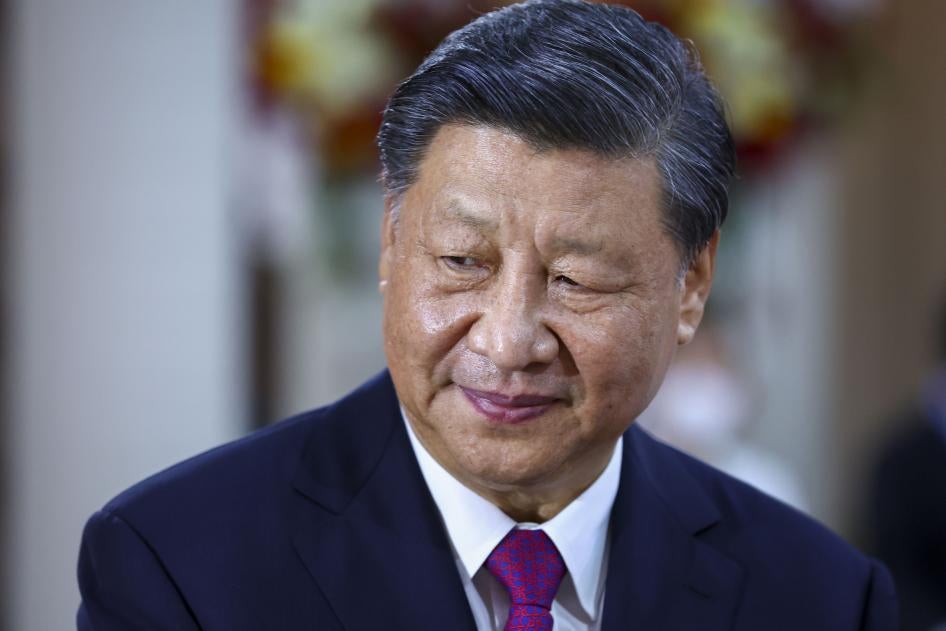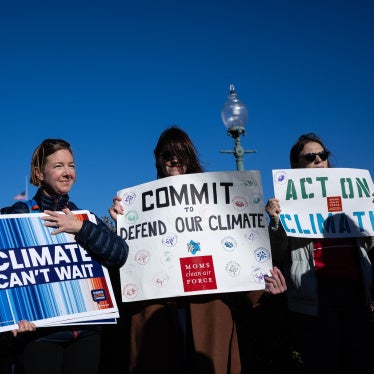(San Francisco) – United States and foreign leaders who meet with Chinese President Xi Jinping during his upcoming visit to the United States should confront him about his government’s intensifying assault on human rights, Human Rights Watch said today. Xi is expected to attend the Asia-Pacific Economic Cooperation (APEC) summit in San Francisco on November 14-15, 2023, and engage in meetings with US President Joseph Biden and other government and business leaders.
In keeping with the theme of this year’s summit, “Creating a Resilient and Sustainable Future for All,” participating APEC countries should also prioritize action on climate change and economic justice, while reaffirming international human rights norms and institutions to confront worsening repression and instability around the world.
“The Chinese government is not going to change its conduct unless it faces sustained public pressure about its horrendous crimes in Xinjiang and Tibet, intensifying repression across China, and the dismantling of democracy in Hong Kong,” said Elaine Pearson, Asia director at Human Rights Watch. “Government leaders at APEC need to press President Xi both about domestic rights violations and China’s efforts to undermine global human rights norms.”
China
Xi’s visit to APEC is his first to the United States since 2017. The Biden administration has said since 2021 that promoting human rights is a central element of its foreign policy and its China policy.
While meeting with Xi, US and other leaders should take a firm public stand on human rights concerns. They should be unambiguous in condemning the Chinese government’s crimes against humanity against Uyghurs and other Turkic communities. Leaders should signal to Xi that they support investigations and accountability for these grave crimes at the international level, and press Xi to release the hundreds of thousands of people who remain arbitrarily detained in Xinjiang’s prisons.
In public and private remarks, leaders who meet with Xi should also identify specific human rights defenders imprisoned throughout China. They should condemn the dismantling of Hong Kong’s freedoms, which have deeply imperiled its relationships with democratic governments, and call on him to scrap the draconian National Security Law and release detained pro-democracy leaders.
Climate change
All government leaders at APEC should make or reaffirm commitments to phase out fossil fuels and end tropical deforestation ahead of the upcoming 28th annual United Nations Climate Change Conference (COP28). As COP host, the United Arab Emirates will be under intense scrutiny to live up to its human rights obligations to release unjustly imprisoned human rights defenders and ensure meaningful participation of independent voices at COP28. Government commitments to respecting human rights in their climate policies will be a major issue at COP28, and several governments attending APEC, including China, Vietnam, and Indonesia, have prosecuted or jailed environmental advocates.
“APEC governments need to recognize that robust climate policies can’t be realized without the meaningful participation of civil society, including those voices calling for the phaseout of fossil fuels,” said Richard Pearshouse, environment director at Human Rights Watch.
Human Rights Watch issued a question and answer document about COP28, which will begin on November 30.
Rights-respecting rule
Government leaders attending APEC should also make meaningful commitments to protect and promote human rights and democratic rule across the Asia-Pacific region. Democratic backsliding or worsening repression is occurring in countries such as Thailand, Vietnam, and Indonesia.
Many APEC governments, including the summit’s host the United States, should do more to address racism, racial or caste-based supremacy, xenophobia, economic inequality, and other entrenched barriers to systemic change. Several states in the United States have recently tightened restrictions on voting rights, peaceful protest, and access to reproductive health, and censored educational materials and journalism. The US government has not taken adequate steps to dismantle systemic racism integral to many US institutions or carry out fair and equitable criminal justice and immigration reforms.
“Leaders of democratic governments attending APEC should publicly reaffirm support for rights-respecting rule,” Pearson said. “They should recommit to the underlying core aims of healthy and resilient democratic systems, which are the rights and liberties of their citizens.”









